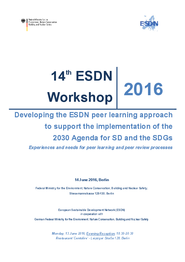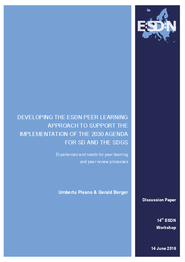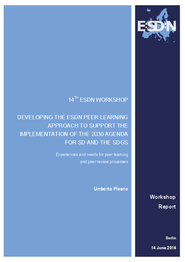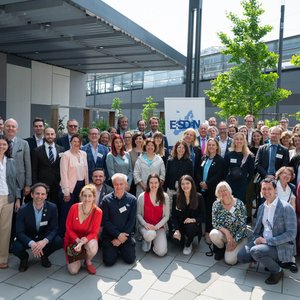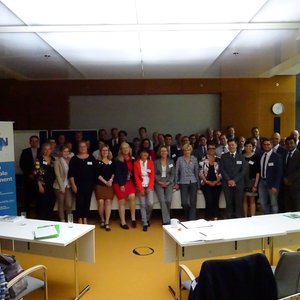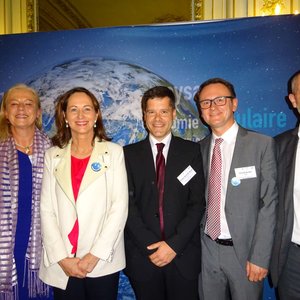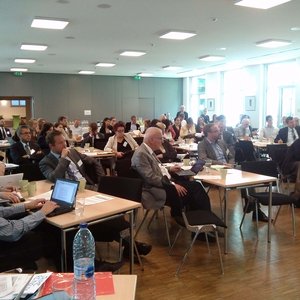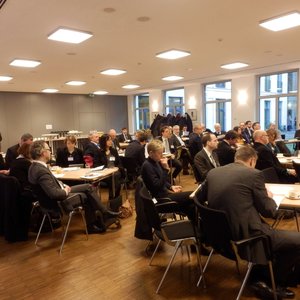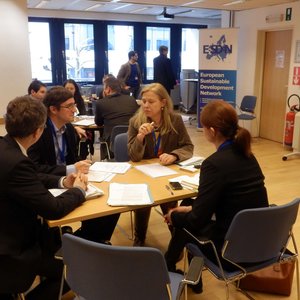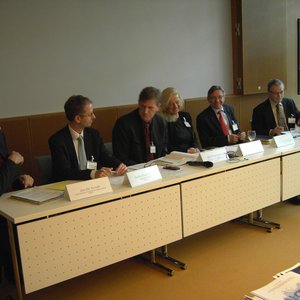14 June 2016, Berlin, Germany
The 14th ESDN Workshop “Developing the ESDN peer learning approach to support the implementation of the 2030 Agenda for SD and the SDGs: Experiences and needs for peer learning and peer review processes” took place in Berlin on 14 June 2016, in cooperation with the German Federal Ministry for the Environment, Nature Conservation, Building and Nuclear Safety.
In the context of the adoption of the 2030 Agenda for Sustainable Development and its 17 Sustainable Development Goals (SDGs), the 14th ESDN Workshop focused on the topic of peer learning applied to policy-making for SD. The ESDN is aiming to establish a peer learning mechanism for national policy-makers to support national policy-makers in their challenging job of implementing the 2030 Agenda for SD. One important cornerstone of this mechanism will be the yearly ESDN Peer Learning Platform (the first one in autumn 2016) that will offer policy-makers from all European countries, experts and selected stakeholders the chance to exchange experiences and learn from implementation practice. The key objectives of the workshop were therefore to:
- develop, together with the workshop participants, the ESDN peer learning approach, based on experiences on peer learning and peer review in individual countries (e.g. Germany), and drawing also on European practices and examples from international institutions (e.g. OECD, UN);
- provide the opportunity to exchange and discuss the needs of national policy-making with regards to the implementation of the 2030 Agenda for SD, and to share experiences and perspectives on how to design policies and processes, and how to link them to national sustainable development strategies.

